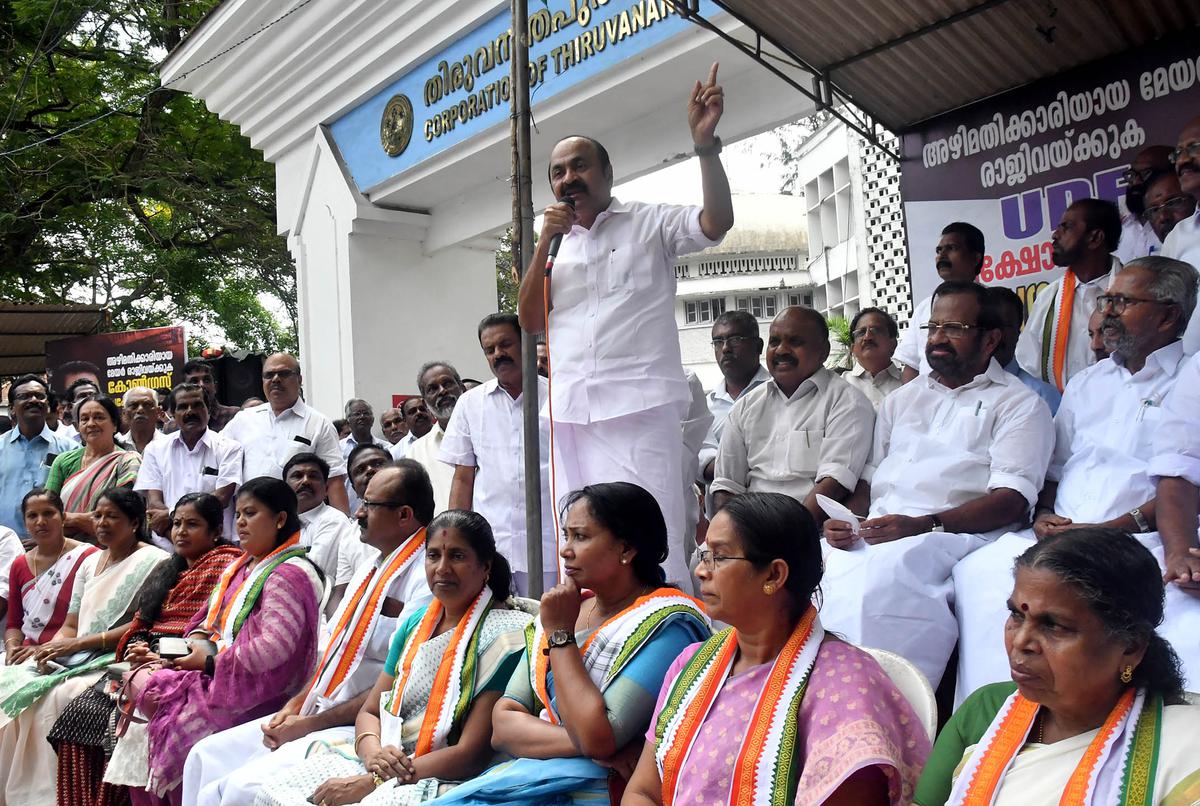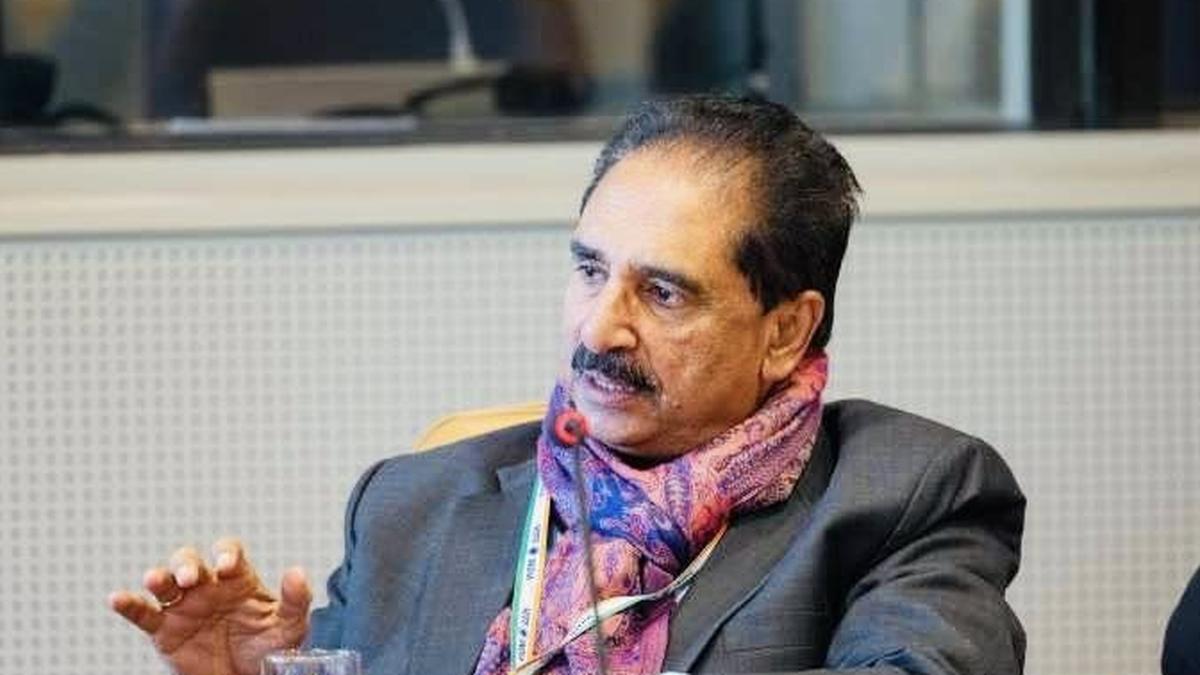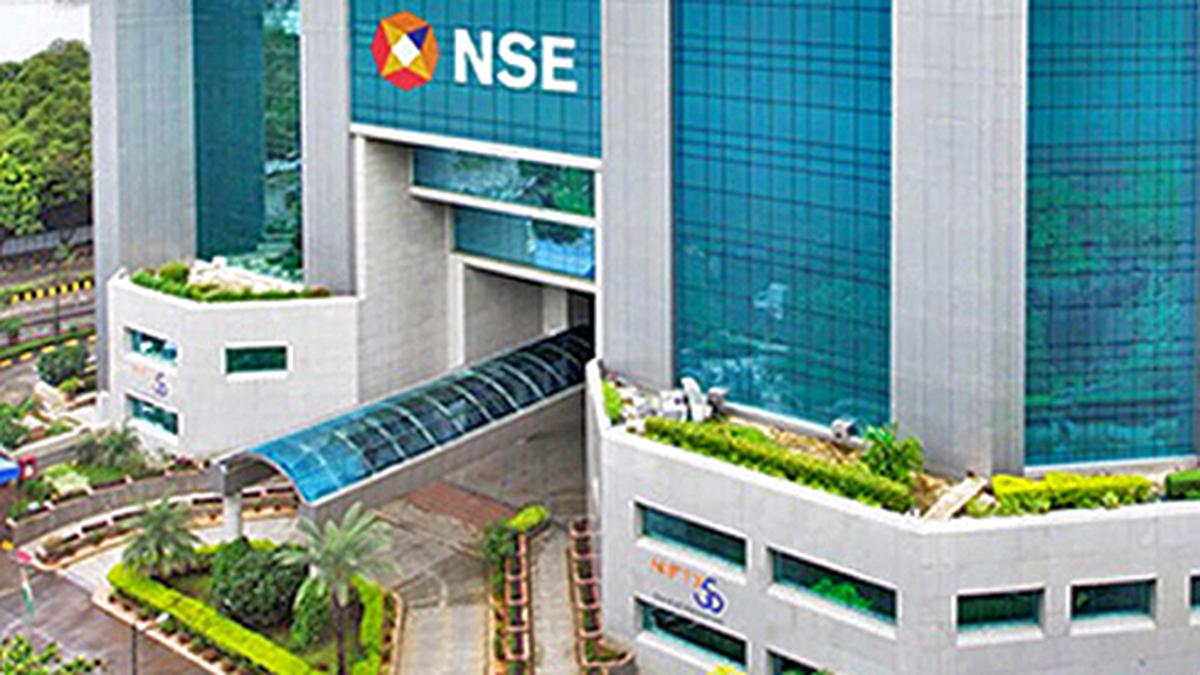Private buses in Thrissur and Palakkad districts kept off the road. Representational file image.
| Photo Credit: K.K. Najeeb
Lakhs of commuters who rely on stage carriage services in Kerala faced significant disruptions on Tuesday (July 8, 2025), after private bus operators called off operations as part of a campaign to press their various demands.
The private bus strike impacted Central and North Kerala more than the South regions. Conventional and social media images of passengers stranded at bus stations in Ernakulam, Kottayam and Kozhikode went viral, eliciting widespread public criticism of the token one-day shutdown of private bus services.
The strike affected hospital patients, families trying to reach the railway stations, and ordinary people attempting to report for work on time. Complaints of overcharging by autorickshaw and taxi drivers trickled in from different parts of the State. The bus strike also brought a windfall for ride-hailing services in urban localities.
However, private buses operated services as per the schedule in Thiruvananthapuram city, where KSRTC has a near monopoly on bus permits. The number of private bus service permits in the district is less than 200.
The Kerala State Road Transport Corporation (KSRTC) has attempted to mitigate the woes of commuters by increasing the number of buses in service. It has urged employees to maximise operations and refrain from availing themselves of casual leave and compensatory leave.
Transport Minister K. B. Ganesh Kumar told reporters in Thiruvananthapuram that the public utility would operate services as usual on the national strike day by left-wing trade unions on Wednesday.
D. Santosh Kumar, a private bus operator, told The Hindu that the Left Democratic Front (LDF) government’s reluctance to increase the student’s concession from ₹1 to at least ₹5 or half the travel fare was a sore point between operators and the administration.
He said the student concession has remained unchanged at Rs 1 since 2005. The government has refused to factor in the incremental increase in operational costs, including fuel, wages and spare parts prices, in the past two decades. Mr Santosh said matters have worsened for bus owners since the start of the current academic year. “Students make up 20 to 25% of the travelling public”, he said.
Another bus operator stated that the administration’s insistence that crew members, including the driver, conductor, and cleaner, obtain police verification certificates was another impediment to operations. “Bus operators rarely have permanent drivers or other crew. The staff work on a temporary, often daily basis. Hence, it is impractical for operators to seek police verification for bus crew on a daily or weekly basis”, he said.
According to the office-bearers of the Joint Committee of Bus Owners, illegal stage carriage operations by contract carriages, including vans and jeeps, have significantly diminished their revenue. They have also demanded the restoration of expired permits and the withdrawal of the directive converting KSRTC limited-stop buses into stage carriages, primarily in Kottayam and Idukki districts.
Published – July 08, 2025 01:00 pm IST





